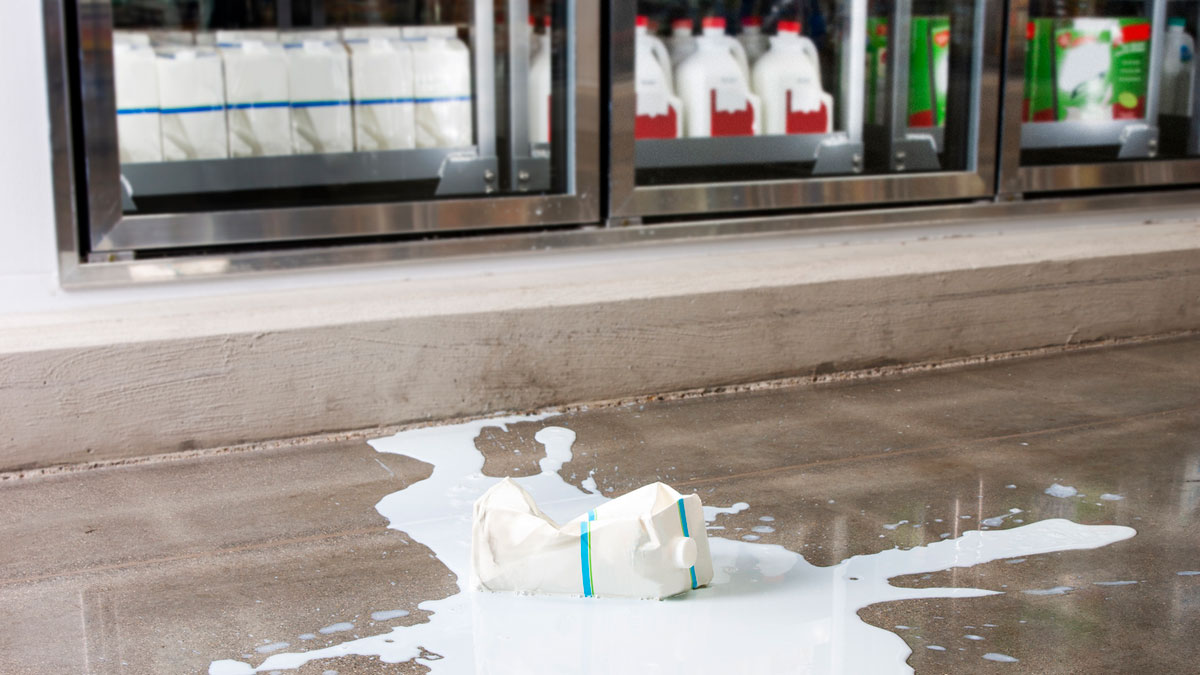CRITERION: Hiro set to clean up in the everyday staples sector

Picture: Getty Images
No matter how much mortgage rates and inflation crimp household budgets, it’s a fair bet that consumers will still be buying cleaning products, personal care items and cheaper cosmetics.
And if these everyday staples are sourced locally with an eco-friendly flavour, then all the better.
That’s the thinking behind pending ASX entrant Hiro, which is in the throes of a rare IPO to raise $25-$35 million ahead of listing on August 31.
Hiro isn’t just playing on a deep non-discretionary purchase theme, but is also tapping anxieties about stretched global supply chains and China tensions.
An amalgam of underfunded private companies Aware (a manufacturer) and Heat (a distributor and marketer), Hiro owns or distributes brands including Organic Choice, Orange Power goo dissolver and Actizyme sink unblocker.
Hiro chief executive Steven Chaur says Hiro will make 75 per cent of the products – or source the ingredients – locally. Hiro’s base is a sprawling facility in Melbourne’s Dandenong South closed by the multinational Cussons 10 years ago.
There, the company is also a contract manufacturer and has fielded strong interest from other consumer companies wanting to bring their operations back onshore.
Chaur knows a thing or two about fast moving consumer goods, having helmed the once listed Patties Foods, owner of Four ‘n’ Twenty pies.
“The products we make are more fundamentals than TVs or coffee machines. These are everyday household staples,” he says.
Hiro competes in a market estimated at $6.8 billion, $5.1bn for toiletries/cosmetics/personal care and $1.7bn for household cleaning.
“Roughly 50 per cent of the market we compete in is imported and we are looking to capture part of that,” Chaur says.
Hiro will join three other “same but different” ASX-listed plays: Pental (ASX:PTL), McPherson’s (ASX:MCP) and BWX (ASX:BWX).
From its Shepparton facility, Pental makes clean living products such as White King bleach and Country Life and Velvet soaps. Pental’s earnings have scrubbed up OK, but perhaps driven more by last year’s $24 million acquisition of Hampers with Bite.
(Interestingly, providore Maggie Beer Foods last year had the same idea and bought the hamper Emporium and Gifts for $40 million.)
McPherson’s doesn’t make anything in its own right but distributes an array of quotidian household items such as Lady Jayne and Swisspers beauty products, the Dr LeWinn’s skincare range and cling wrap and aluminium foil.
A plodder but usually paying a decent dividend, McPherson’s has pre-reported a full year underlying pre-tax profit of $10.7 million, 11 per cent higher. Revenue gains 7 per cent to $214m despite the input cost pressures.
Hiro chalked up $96 million of revenue in the 2020-21 year and lost $4.3 million.
The company strives to achieve $300 million a year turnover “in the next couple of years”. Earnings should look after themselves, especially after the company managed to push through price increases averaging 10 per cent, the first rise in six years.
“Every dollar we add to the revenue lines adds to profits incrementally because the overheads aren’t going up,” Chaur says.
Post listing, Hiro will be valued at a nominal $110 million, similar to McPherson’s market cap and bigger than Pental’s $69m.
Meanwhile, BWX’s $140 million valuation is a shadow of its old self, despite sales of its core Sukin skin and hair care brand holding up OK.
BWX has been blemished by its over-the-top, $89m purchase of 51.1 per cent of Go-To-Skincare from author Zoe Foster Blake, which left the partner of funny man Hamish Blake chortling all the way to the bank and the company forced to undertake an emergency capital raising.
The BWX experience shows that while margins in personal care are of sheer beauty, that accounts for nothing with botched execution.
Another hazard for the consumer goods purveyors is being beholden to the major supermarkets. In this respect, Hiro is snuggling up to the pharmacies and outlets such as Kmart and Bunnings.
This story does not constitute financial product advice. You should consider obtaining independent advice before making any financial decisions.
UNLOCK INSIGHTS
Discover the untold stories of emerging ASX stocks.
Daily news and expert analysis, it's free to subscribe.
By proceeding, you confirm you understand that we handle personal information in accordance with our Privacy Policy.








